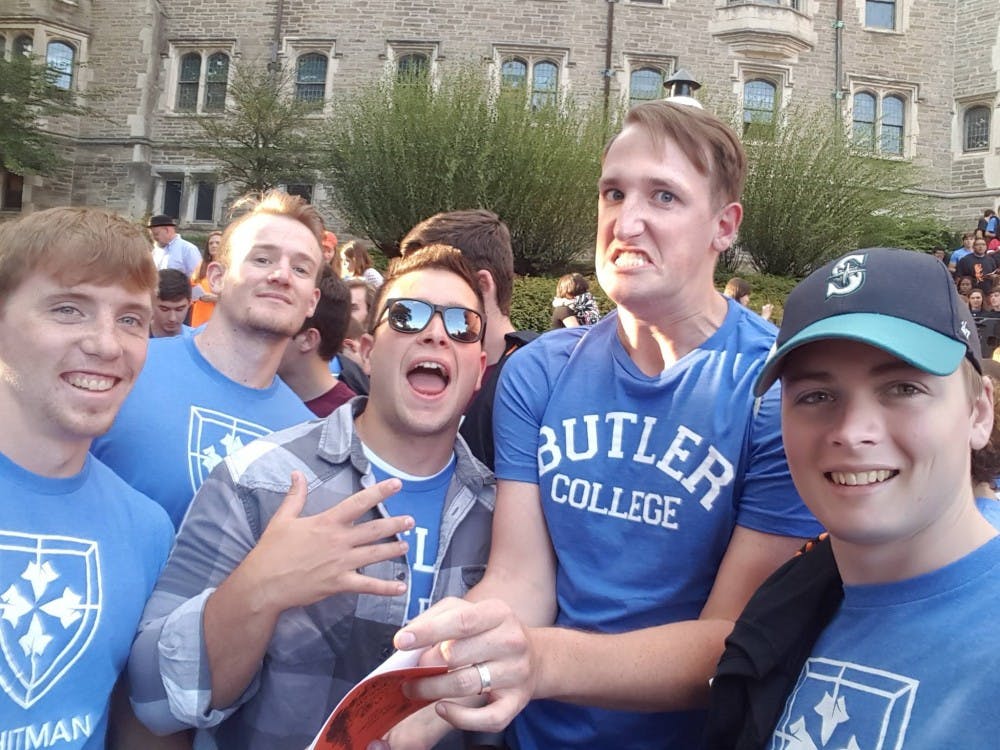Compared to recent graduating years, the Class of 2021 contains a much higher number of students who are veterans — a number which will only increase in the following years, explained Tyler Eddy ’21, a former U.S. Marine and current first-year student.
According to Eddy, the potentially tough transition to student life often makes the decision to apply to an elite university difficult for veterans. However, because of diversity efforts pursued by President Eisgruber, the number of veterans has increased in recent years. Veteran alumnus requests to see a greater influx of veterans in future classes have also been an important driver, Eddy said.
“As a former helicopter and airplane mechanic for the Marines, stationed in California, I wanted to major in astrophysics,” said Eddy. “But applying to an Ivy League institution isn’t something that is always particularly encouraged among veterans.”
Eddy noted that the University has increased outreach to veterans, persuading more of them to apply.
“I met with some admissions officers who came to my military base and promoted Princeton at a college symposium,” said Eddy. “That outreach has a positive effect on applicants.”
Eddy is one of five U.S. veterans in the first-year class that founded the Princeton Student Veterans Alliance. The organization aims to establish a foundation for veterans in future classes, serving as a support group to ease veterans into the University’s student lifestyle.
According to Thaddeus Whelan ’21, another veteran, the University’s transfer program, which starts in fall 2018, will be closely associated with the admission of more veterans because it is part of the University’s goal to increase campus diversity.
“In almost every aspect, Princeton has supported all of us in our endeavors to become integrated into the class,” said Whelan, adding that even though the veterans admitted to the Class of 2021 were not part of the transfer program, transfer admissions will only encourage applications from future veterans and other students from nontraditional backgrounds.

Alongside the director of the University’s transfer program Keith Shaw and the University’s Office of Access and Inclusion, Whelan, as student life chief of the Princeton Student Veterans Alliance, hopes to help veterans.
“My goal is to understand the needs and wants of veterans, due to the sheer diversity of situations each veteran will have,” said Whelan. “Being the inaugural multiple-veteran class of the 21st century, we have both a unfathomable opportunity and an obligation to those coming after us.”
Eddy explained that the University has done a great job in making the transition from military to civilian life easier.
“All five of us American veterans have joined the Scholars Institute Fellows Program,” said Eddy. “That’s been a great opportunity to meet other students whose backgrounds may make the transition into college life difficult.”

According to Eddy, the first-year veterans are also actively participating in the community through University extracurriculars such as rugby and rowing, which offer more opportunities to meet other students and enjoy student life.
Christopher Wilson ’21, another veteran, agreed that life at the University has been enjoyable so far.
“At first, I was fearful of my performance at an Ivy League school,” said Wilson. “Now, I’m not only doing a decent job in the classroom, but I’m also making new friends, seeing new things, experiencing new adventures, and loving my life.”
The student body also plays a significant role in improving the social life of veterans in the new class, who tend to be older than students who matriculate right after high school, according to 26-year-old Eddy.
“I was definitely a little nervous before coming to Princeton, due to the dramatic age gap between most students and me,” said Eddy. “But everyone at the University is a driven individual, and that gives them a level of maturity not commonly found in 18-year-olds.”
Wilson agrees that this high level of maturity makes it easy for veterans to connect with younger students.
“The transition from the military into civilian life can be very hard,” Wilson said. "But I’m lucky to be among so many brilliant minds.”
Other veterans in the Class of 2021 include Brendan O’Hara and Jake Sawtelle, who are also founders and members of the Princeton Student Veteran Alliance. According to Eddy, in the coming years, the organization plans to reach out to international veterans and also to devise new ways to improve the lives of matriculating veterans.








